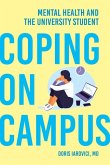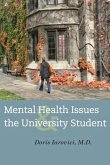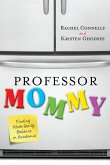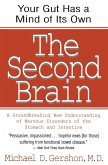Allan D Peterkin
Portfolio to Go
1000+ Reflective Writing Prompts and Provocations for Clinical Learners
Allan D Peterkin
Portfolio to Go
1000+ Reflective Writing Prompts and Provocations for Clinical Learners
- Gebundenes Buch
- Merkliste
- Auf die Merkliste
- Bewerten Bewerten
- Teilen
- Produkt teilen
- Produkterinnerung
- Produkterinnerung
In Portfolio To Go, Allan D. Peterkin insists that reflective capacity, critical thinking, creative expression, and narrative competence are attributes that should be developed in every health professional.
Andere Kunden interessierten sich auch für
![Coping on Campus Coping on Campus]() Doris IaroviciCoping on Campus94,99 €
Doris IaroviciCoping on Campus94,99 €![Mental Health Issues and the University Student Mental Health Issues and the University Student]() Doris IaroviciMental Health Issues and the University Student65,99 €
Doris IaroviciMental Health Issues and the University Student65,99 €![Birthing Liberation Birthing Liberation]() Sabia WadeBirthing Liberation23,99 €
Sabia WadeBirthing Liberation23,99 €![Bodywork for Babies Bodywork for Babies]() Susan Vaughan KratzBodywork for Babies43,99 €
Susan Vaughan KratzBodywork for Babies43,99 €![Professor Mommy Professor Mommy]() Rachel ConnellyProfessor Mommy58,99 €
Rachel ConnellyProfessor Mommy58,99 €![WomanCode WomanCode]() Alisa VittiWomanCode10,99 €
Alisa VittiWomanCode10,99 €![The Second Brain The Second Brain]() Michael GershonThe Second Brain10,99 €
Michael GershonThe Second Brain10,99 €-
-
-
In Portfolio To Go, Allan D. Peterkin insists that reflective capacity, critical thinking, creative expression, and narrative competence are attributes that should be developed in every health professional.
Produktdetails
- Produktdetails
- Verlag: University of Toronto Press
- Seitenzahl: 192
- Erscheinungstermin: 19. Oktober 2016
- Englisch
- Abmessung: 231mm x 150mm x 28mm
- Gewicht: 567g
- ISBN-13: 9781487500191
- ISBN-10: 148750019X
- Artikelnr.: 45064247
- Herstellerkennzeichnung
- Libri GmbH
- Europaallee 1
- 36244 Bad Hersfeld
- gpsr@libri.de
- Verlag: University of Toronto Press
- Seitenzahl: 192
- Erscheinungstermin: 19. Oktober 2016
- Englisch
- Abmessung: 231mm x 150mm x 28mm
- Gewicht: 567g
- ISBN-13: 9781487500191
- ISBN-10: 148750019X
- Artikelnr.: 45064247
- Herstellerkennzeichnung
- Libri GmbH
- Europaallee 1
- 36244 Bad Hersfeld
- gpsr@libri.de
By Allan D. Peterkin, MD
ACKNOWLEDGEMENTS
INTRODUCTION - Some Background on Reflective Capacity
1. Why We Write (and How We Can Do It Better)
2. What Can My Reflective Portfolio Be?
3. Finding Optimal Conditions to Write and Reflect
4. Getting Started: Learning as a Journey - Writing Prompts
5. Using Writing Prompts and Storytelling to Maximize Growth and Reflection
6. Communication - Writing Prompts
7. Collaboration and Teamwork - Writing Prompts
8. Conflict - Writing Prompts
9. The Personal Narrative Reflection Tool - Steps for Enhancing Critical
Reflection in your Portfolio Entries
10. The Patient or Client as Person - Writing Prompts
11. Diversity Culture Equity - Writing Prompts
12. Social Justice/ Advocacy - Writing Prompts
13. From Portfolio to Action: Practical Strategies for Practicing
Narrative-Based Care
14. Well-Being and the Clinician as a Person - Writing Prompts
15. Ambiguity/ Uncertainty - Writing Prompts
16. Career Satisfaction - Writing Prompts
17. Battling the Inner Critic - How to Stay Open when you Reflect and Write
18. Personal Reflections - Writing Prompts
19. Elements of Critical Written Reflection
20. Sample Course Guidelines - USCF LEAP and Reflection on Action Rubric
(UCSF)
21. The Body - Writing Prompts
22. Things to Consider when Forming a Reflective Writing Group
23. Professionalism and Ethics - Writing Prompts
24. Values, Beliefs and Assumptions - Writing Prompts
25. Toward a More In-depth Assessment of Reflective Writing Evaluation -
How do Professors Grade Your Assignments?
26. Hidden Curriculum and Power - Writing Prompts
27. Am I a Good Group Member? Positive Characteristics
28. Dilemmas and Difficult Stories - Writing Prompts
29. Sample Discussion Points when Working with Students
30. For Teachers and Student Leaders
31. A Sample Narrative Reflection Workshop Evaluation
32. Creativity - Writing Prompts
33. Graphic Medicine - Reflecting Without Words
34. Getting Published - Common Themes that Predict Success
35. Guidelines for Narrative Accountability when Writing about Patients /
Clients
36. Finding Publishing Opportunities
37. A Few Words on Blogging and Social Media
38. Other Writing and Healing References
39. Author Biography
INTRODUCTION - Some Background on Reflective Capacity
1. Why We Write (and How We Can Do It Better)
2. What Can My Reflective Portfolio Be?
3. Finding Optimal Conditions to Write and Reflect
4. Getting Started: Learning as a Journey - Writing Prompts
5. Using Writing Prompts and Storytelling to Maximize Growth and Reflection
6. Communication - Writing Prompts
7. Collaboration and Teamwork - Writing Prompts
8. Conflict - Writing Prompts
9. The Personal Narrative Reflection Tool - Steps for Enhancing Critical
Reflection in your Portfolio Entries
10. The Patient or Client as Person - Writing Prompts
11. Diversity Culture Equity - Writing Prompts
12. Social Justice/ Advocacy - Writing Prompts
13. From Portfolio to Action: Practical Strategies for Practicing
Narrative-Based Care
14. Well-Being and the Clinician as a Person - Writing Prompts
15. Ambiguity/ Uncertainty - Writing Prompts
16. Career Satisfaction - Writing Prompts
17. Battling the Inner Critic - How to Stay Open when you Reflect and Write
18. Personal Reflections - Writing Prompts
19. Elements of Critical Written Reflection
20. Sample Course Guidelines - USCF LEAP and Reflection on Action Rubric
(UCSF)
21. The Body - Writing Prompts
22. Things to Consider when Forming a Reflective Writing Group
23. Professionalism and Ethics - Writing Prompts
24. Values, Beliefs and Assumptions - Writing Prompts
25. Toward a More In-depth Assessment of Reflective Writing Evaluation -
How do Professors Grade Your Assignments?
26. Hidden Curriculum and Power - Writing Prompts
27. Am I a Good Group Member? Positive Characteristics
28. Dilemmas and Difficult Stories - Writing Prompts
29. Sample Discussion Points when Working with Students
30. For Teachers and Student Leaders
31. A Sample Narrative Reflection Workshop Evaluation
32. Creativity - Writing Prompts
33. Graphic Medicine - Reflecting Without Words
34. Getting Published - Common Themes that Predict Success
35. Guidelines for Narrative Accountability when Writing about Patients /
Clients
36. Finding Publishing Opportunities
37. A Few Words on Blogging and Social Media
38. Other Writing and Healing References
39. Author Biography
ACKNOWLEDGEMENTS
INTRODUCTION - Some Background on Reflective Capacity
1. Why We Write (and How We Can Do It Better)
2. What Can My Reflective Portfolio Be?
3. Finding Optimal Conditions to Write and Reflect
4. Getting Started: Learning as a Journey - Writing Prompts
5. Using Writing Prompts and Storytelling to Maximize Growth and Reflection
6. Communication - Writing Prompts
7. Collaboration and Teamwork - Writing Prompts
8. Conflict - Writing Prompts
9. The Personal Narrative Reflection Tool - Steps for Enhancing Critical
Reflection in your Portfolio Entries
10. The Patient or Client as Person - Writing Prompts
11. Diversity Culture Equity - Writing Prompts
12. Social Justice/ Advocacy - Writing Prompts
13. From Portfolio to Action: Practical Strategies for Practicing
Narrative-Based Care
14. Well-Being and the Clinician as a Person - Writing Prompts
15. Ambiguity/ Uncertainty - Writing Prompts
16. Career Satisfaction - Writing Prompts
17. Battling the Inner Critic - How to Stay Open when you Reflect and Write
18. Personal Reflections - Writing Prompts
19. Elements of Critical Written Reflection
20. Sample Course Guidelines - USCF LEAP and Reflection on Action Rubric
(UCSF)
21. The Body - Writing Prompts
22. Things to Consider when Forming a Reflective Writing Group
23. Professionalism and Ethics - Writing Prompts
24. Values, Beliefs and Assumptions - Writing Prompts
25. Toward a More In-depth Assessment of Reflective Writing Evaluation -
How do Professors Grade Your Assignments?
26. Hidden Curriculum and Power - Writing Prompts
27. Am I a Good Group Member? Positive Characteristics
28. Dilemmas and Difficult Stories - Writing Prompts
29. Sample Discussion Points when Working with Students
30. For Teachers and Student Leaders
31. A Sample Narrative Reflection Workshop Evaluation
32. Creativity - Writing Prompts
33. Graphic Medicine - Reflecting Without Words
34. Getting Published - Common Themes that Predict Success
35. Guidelines for Narrative Accountability when Writing about Patients /
Clients
36. Finding Publishing Opportunities
37. A Few Words on Blogging and Social Media
38. Other Writing and Healing References
39. Author Biography
INTRODUCTION - Some Background on Reflective Capacity
1. Why We Write (and How We Can Do It Better)
2. What Can My Reflective Portfolio Be?
3. Finding Optimal Conditions to Write and Reflect
4. Getting Started: Learning as a Journey - Writing Prompts
5. Using Writing Prompts and Storytelling to Maximize Growth and Reflection
6. Communication - Writing Prompts
7. Collaboration and Teamwork - Writing Prompts
8. Conflict - Writing Prompts
9. The Personal Narrative Reflection Tool - Steps for Enhancing Critical
Reflection in your Portfolio Entries
10. The Patient or Client as Person - Writing Prompts
11. Diversity Culture Equity - Writing Prompts
12. Social Justice/ Advocacy - Writing Prompts
13. From Portfolio to Action: Practical Strategies for Practicing
Narrative-Based Care
14. Well-Being and the Clinician as a Person - Writing Prompts
15. Ambiguity/ Uncertainty - Writing Prompts
16. Career Satisfaction - Writing Prompts
17. Battling the Inner Critic - How to Stay Open when you Reflect and Write
18. Personal Reflections - Writing Prompts
19. Elements of Critical Written Reflection
20. Sample Course Guidelines - USCF LEAP and Reflection on Action Rubric
(UCSF)
21. The Body - Writing Prompts
22. Things to Consider when Forming a Reflective Writing Group
23. Professionalism and Ethics - Writing Prompts
24. Values, Beliefs and Assumptions - Writing Prompts
25. Toward a More In-depth Assessment of Reflective Writing Evaluation -
How do Professors Grade Your Assignments?
26. Hidden Curriculum and Power - Writing Prompts
27. Am I a Good Group Member? Positive Characteristics
28. Dilemmas and Difficult Stories - Writing Prompts
29. Sample Discussion Points when Working with Students
30. For Teachers and Student Leaders
31. A Sample Narrative Reflection Workshop Evaluation
32. Creativity - Writing Prompts
33. Graphic Medicine - Reflecting Without Words
34. Getting Published - Common Themes that Predict Success
35. Guidelines for Narrative Accountability when Writing about Patients /
Clients
36. Finding Publishing Opportunities
37. A Few Words on Blogging and Social Media
38. Other Writing and Healing References
39. Author Biography








